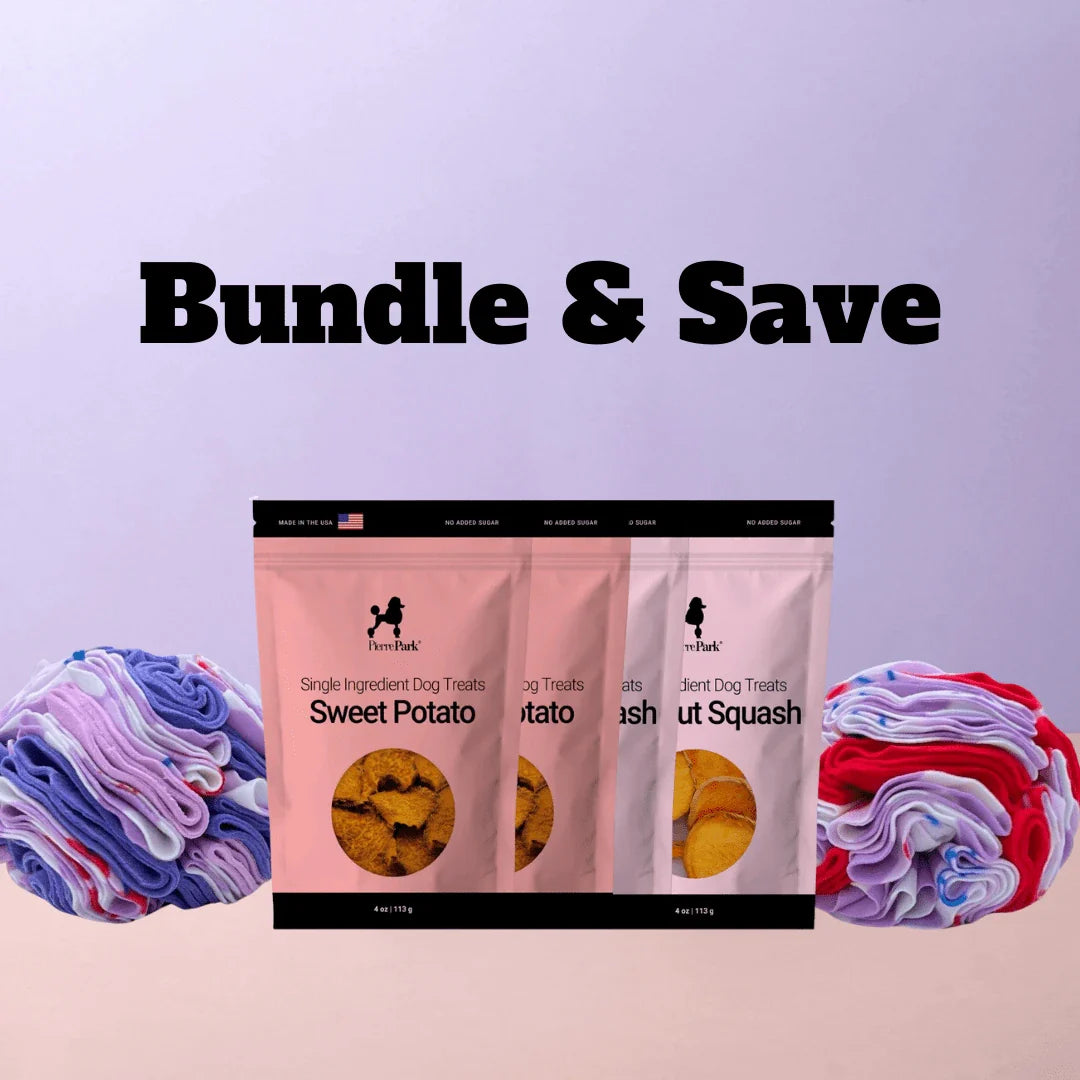Table of Contents
Peanut butter has long been a favorite of dogs across the world, but have you ever wondered why dogs like it so much?
The truth is that there are many compelling arguments as to why dogs like peanut butter so much. From the high-fat content to the protein and salt, you can argue a lot of different reasons why it’s a favorite.
In this guide, we’ll explore all of these arguments, as well as take a deep dive into the benefits of peanut butter for dogs and why you should consider feeding your dog peanut butter if you haven’t before.
The Reasons Why Dogs Like Peanut Butter So Much
Funnily enough, there are a lot of arguments for why dogs like peanut butter so much.
Some people argue that it’s because of the high fat content, while others believe it’s just due to the protein.
There isn’t really any hard evidence for why dogs like peanut butter so much, and it’s likely a combination of a few things:
High-fat content - A leading argument is that dogs love peanut butter because it’s packed full of fat. Fat adds flavor to any food, and peanut butter is 72% fat by calories, so it’s definitely no slouch in this area.
High protein content - Another reason why dogs might love peanut butter so much is due to the high protein content. Outside of fat, peanut butter contains 14% protein by calories, and given how protein should be the main nutrient in your pup’s diet, it makes sense why they would like peanut butter.
Salty - Peanut butter has a naturally salty flavor, which is something that a lot of dogs seem to love. If you've ever noticed your dog licking your leg on a hot day, you'll know what we're talking about.
Flavor - Let’s be real, peanut butter tastes amazing. Sure, you can argue that dogs seek out food that they need (high protein, fatty acids, etc), but it’s also pretty obvious that they enjoy foods that simply taste nice.
So whether you’re in the camp that dogs will eat foods that are healthy for them, or if they simply like the taste of peanut butter thanks to its composition and salt levels, it’s safe to say that most dogs love peanut butter nonetheless.
Is Peanut Butter Healthy For Dogs? (Key Benefits)
Peanut butter is often described as a 'healthy food', which can sometimes be confusing given how much fat it contains.
The key here is that peanut butter contains a high amount of ‘healthy’ or unsaturated fat. This is similar to things like high-quality olive oil or avocados, for example.
High Protein
As we mentioned before, peanut butter contains 14% protein by calories, which is a fairly high amount.
Dogs use protein, alongside fats, as their main energy source, which means peanut butter is great for providing these nutrients. Whether or not dogs actively prefer foods high in protein is another matter, but they definitely don't turn their noses away at most high-protein snacks.
High In (Healthy) Fats
Another key reason why peanut butter is so healthy for dogs is that it contains a lot of healthy fat - it has a ratio similar to olive oil in terms of unsaturated to saturated fat.
Fats give dogs energy and help the body absorb fat-soluble vitamins, and it’s recommended that dogs have a crude fat level of 5% in their food.
The interesting thing here is that ‘crude basis’ does not account for the quality of the fat, which is why peanut butter is such an amazing dog treat.
Lots of dog food may meet the fat requirement, but it’s super difficult to know what type of fat is actually included and whether it's beneficial for your pup or not.
Great For Training & Mental Stimulation
We’ll dive into this in more detail later in this guide, but peanut butter is ideal for training and giving your dog mental stimulation.
As a super high-value reward, it can be great to give to your dog (in small amounts) after they successfully follow a command.
You can also put some peanut butter on a training toy or chew, and it can keep them distracted for hours.
Single Ingredient
One of peanut butter's most overlooked benefits for dogs is its remarkable simplicity. Many brands contain just one ingredient: peanuts. While some commercial varieties include harmful additives and sweeteners (we'll discuss why to avoid these below), quality peanut butter offers pure nutrition with minimal processing.
This simplicity reflects what veterinarians and animal nutritionists consistently recommend for our pets. Treats with just one ingredient are easier to trust and make it simpler to monitor your dog's diet. We founded PierrePark on this exact principle, believing that dogs deserve treats as pure and simple as the ones we'd want for ourselves.
Before Feeding Your Dog Peanut Butter
Before you feed your dog peanut butter, read the label.
This is important because some peanut butter brands can contain a sweetener called xylitol, which is poisonous to dogs.
Xylitol causes rapid insulin release in dogs, which can be life-threatening if left untreated. So, before feeding your dog peanut butter, read the label.
There are also a few other situations where peanut butter should not be given to a dog:
If Your Dog Is Overweight
As peanut butter is so calorie-dense, it isn’t the ideal treat for dogs that are overweight and are trying to get back into a healthy weight range. Just think about it, when we're trying to lose weight, we have to track our calories carefully and opt for low-calorie foods, and dogs are no different; we just have to do it for them.
Lower-calorie snack options exist (our sweet potato treats are a great example) that are packed full of healthy nutrients without the calorie cost.
It doesn’t have to be a case of treats vs. no treats; you may just need to adjust the type of treat so your pup still has something to look forward to.
If Your Dog Requires A Low Sodium Diet
There are many health conditions that can affect dogs and lead to the requirement of a low-sodium diet.
This includes things like hypertension and kidney disease, and in these scenarios, it would not be advised to feed your dog peanut butter due to its sodium content.
Always consult with your veterinarian about your dog's diet before you introduce something new into it, like peanut butter, as there may be better alternatives.
How Much Peanut Butter Should Dogs Eat?
Assuming the peanut butter is completely natural without harmful sweeteners like xylitol, and they are okay with higher-salt treats, you can feed your pup an average of a teaspoon to a tablespoon each day.
An easy rule of thumb to implement is the 10% rule, where no more than 10% of their daily calories should come from treats like peanut butter.
This is an easy way to make sure you’re not overfeeding them, so they can still get the majority of their calories from a high-quality, complete dog food.
Peanut Butter Training Tips
Here are some easy tips for getting the most out of peanut butter as a treat for your pup.
Use It As A Reward
The most common way to use peanut butter during training is as a reward.
When training your dog, giving them positive reinforcement after they follow a command is the basics of teaching them new skills or commands.
Peanut butter is a very high-value reward, and if your dog loves it as much as most dogs do, it’s a great way to reward them and get them hooked on training.
Make Treats With It
Peanut butter can form the base of a lot of homemade dog treats.
You can mix them with bananas and oats, for example, to create nutritionally packed small treats that can then be used during training or as a treat during the day.
There are lots of recipes you can experiment with - just give it a try!
Mental Stimulation
This one is less so for training and more just a tip for giving your dog peanut butter as a treat.
Putting peanut butter on their favorite chew toy can lead to hours of mental stimulation for your pup if you don’t have the energy to train them or want them to entertain themselves for a bit.
Wrapping It Up
If your dog doesn’t have problems with high-fat or sodium treats, peanut butter is a great choice, as long as you read the label and make sure it doesn’t contain any nasty additives.
You can use it for training or simply as a nutritious snack that compliments their daily diet.
If you want to explore more single ingredient treats for your dog, check out our range of single ingredient dog treats.






